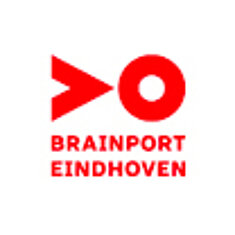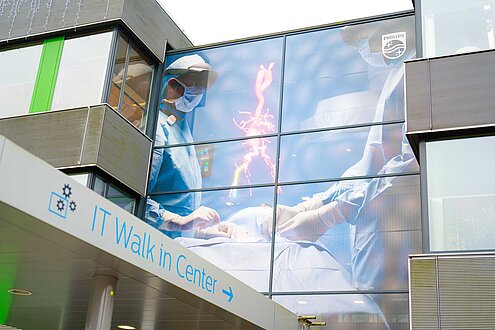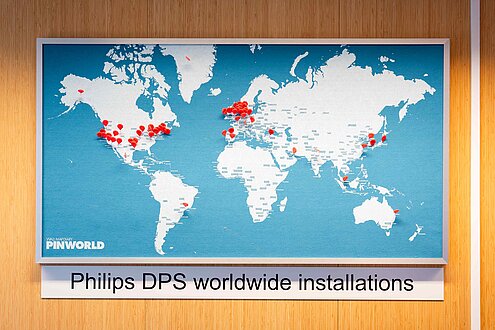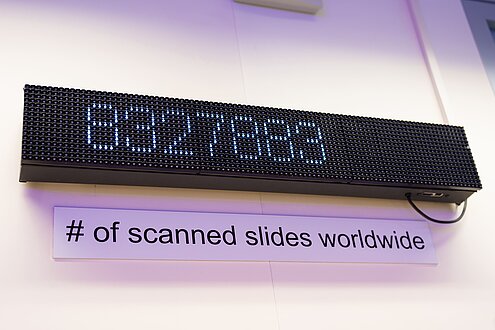Meet Ra’na Saleem: working in Regulatory Affairs at Philips making a world of difference to cancer patients

Ra'na Saleem, a biotechnology engineer, first came to the region to accompany her partner but soon found herself part of the Brainport tech cluster when she started working at Phillips. Eleven years later, she is now the Senior Regulatory Affairs Manager at the health technology company, leading the Regulatory Affairs team in digital pathology and disease management systems. This is her story.
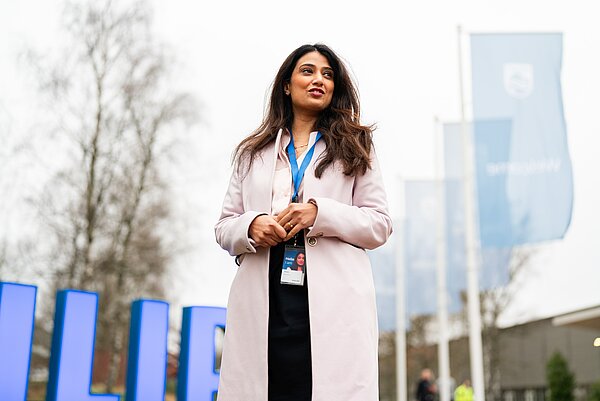
Tell us a bit more about yourself
Ra'na: I was born in Bangalore but lived in the Middle East for most of my life. Then in 2013, I moved to Eindhoven to accompany my spouse. Later, I started working at Philips, and I've been here ever since.
How long have you been at Philips?
Ra'na: On and off for about eight years. I started as a Safety Manager and did some consulting, but I’ve always been associated with product safety, compliance, quality, and regulations. I've seen everything at Philips from baby bottles to toothbrushes, MRI machines, and now digital pathology.
Throughout my journey with Philips, the company has helped me to evolve in my career. When I first started, the company offered Dutch classes to help internationals integrate. Philips also helped me understand the work culture in the Netherlands, provided insurance information, and eased the process of starting life in a new country. I consider myself lucky for all the support I’ve received.
“What I really like about working in Regulatory Affairs in a relatively new field like digital pathology is that it touches so many patients’ lives. We help to get solutions quickly and safely to market – in our case by helping oncologists to diagnose patients faster.”
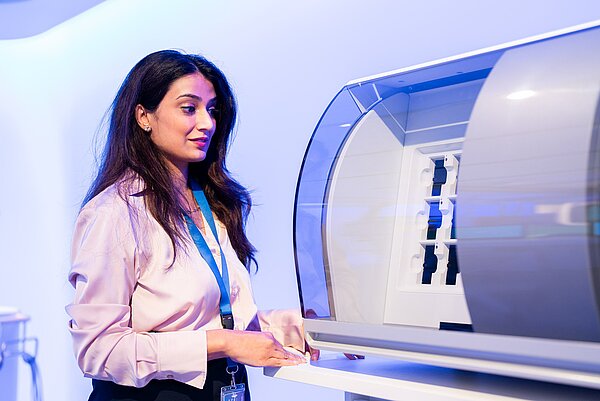
Tell us more about your role and what you do at Philips.
Ra'na: In Regulatory Affairs at Philips, we ensure that our products and solutions meet safety standards and regulations to get medical devices and healthcare solutions quickly and safely to market. I think of Regulatory Affairs as a company’s guardrails. We’re the people who enable businesses to work within the framework set out by regulations and standards from different countries and governments.
What I really like about my current role is that we touch so many patients' lives. Philips is a front-runner in digital pathology and cancer detection. To work with solutions and innovations like these gives me a sense of purpose – it’s why I do what I do!
How does your role help to improve lives?
Ra'na: In my current role, I get to make a big impact. Digital pathology is a relatively new field, unlike radiology for example. And for patients, diagnosis is the first step to getting cancer care. With digital pathology, we help oncologists to diagnose patients faster, making the shift from the microscope to working digitally, which helps to create a more efficient system.
“Knowing that a solution works correctly and can be relied upon by clinicians is something I can look back on and be proud of.”

What’s the future of healthcare, and what role does Philips play in it?
Ra'na: Healthcare is on a rapid trajectory towards improving care through digitalization – whether that’s through enabling new healthcare settings like virtual care or helping clinicians to use technology more efficiently – and Philips is at the forefront of that transformation, making sure we bring patients and caregivers along on the journey.
My role is to help speed up that transformation by ensuring we have the right regulatory talent. Doing so means we can move as fast as the rest of the world is moving, specifically when it comes to making healthcare accessible. Enabled by intelligent software, machine learning, and AI solutions, the digital transformation will help more pathologists to diagnose a patient without needing to be physically present.
When it comes to your career, what are you proud of?
Ra'na: There are new regulations in Europe to ensure that your solutions can transition from creation and testing to public use. In my role, I need to ensure that these solutions are available for pathologists and healthcare workers and that they perform correctly.
Knowing how important that solution is – and the difference it can make in someone's life – makes me want to ensure everything is in order; that the product meets these new regulations and is available on the market, so that clinicians and their patients can rely on it.
The fact that I can make it happen, and I'm part of that journey – that's something I can look back on and be proud of.
“If you’re thinking about moving to Brainport, I say go for it! You’ll get a great work-life balance and great international and local community support.”
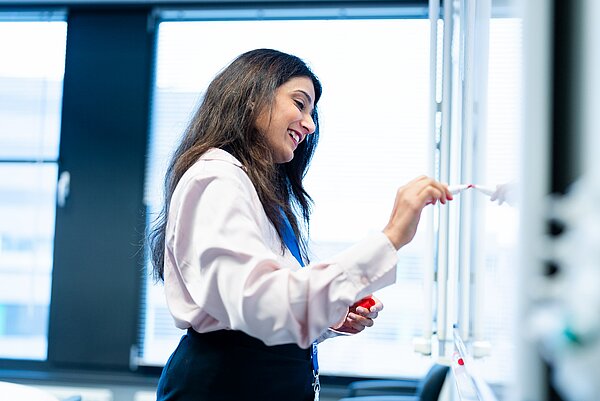
What do you like about living in Brainport Eindhoven?
Ra'na: I like how Eindhoven is a city, but it's also small compared to the capital. It has an urban feel, but at the same time, if the kids want to go for a walk, we’re still close to nature. Everything is pretty accessible, and the region has plenty to offer, even for non-Dutch speakers. And I really like how family-friendly everything is.
Can you sum up your experience as an international in the Netherlands?
Ra'na: I remember that the first things I noticed when I recently moved here was the cold (I moved in February!) and the bikes. I was used to life in the Middle East, and at first, the weather was so different, but I was also amazed by the number of bikes.
Throughout the years, I have seen Brainport change and evolve. I'm happy to see the growth of the international community. That comes with many perks, like more initiatives to incentivize the community, more cultural exchanges, and different types of restaurants, cuisines and celebrations.
What advice would you give to other internationals considering moving to the region?
Ra'na: I’d encourage anyone considering a move to the Netherlands and Brainport Eindhoven. For me, it’s been a positive experience. You might have doubts, but don't let that stop you. Here, you have an excellent work-life balance, great education for your kids, international and local community support, and great opportunities for professional growth.
You can be sure that here, you won't spend most of your time commuting to work or working non-stop behind a desk. For me, that is the biggest plus, and to anyone considering taking the plunge, I’d say go for it!
